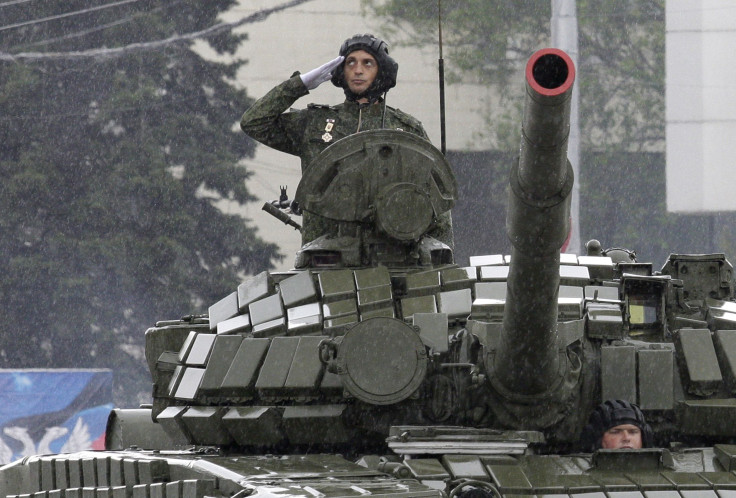Is Russia Killing Rebels In Ukraine? Separatist Commander Mikhail Tolstykh Dies In Donetsk Explosion

A commander of Ukraine's pro-Russian separatist forces known as “Givi” died Wednesday after an explosion went off at his office in the rebels’ de facto capital city of Donetsk. Authorities in the rebel groups were calling it a terrorist attack by Ukrainian security forces.
Ukrainians with knowledge of the crisis said Kiev forces were not involved, and that Mikhail Tolstykh’s killing was probably the result of infighting among the pro-Russia separatists. Military commentator Dmytro Tymchuk told BBC News that Givi directly disobeyed orders during last week’s fighting just outside of Donetsk that left seven Ukrainian soldiers dead and 14 wounded. And Dmytro Tymchuk, a deputy in Ukraine’s parliament, told the Wall Street Journal, the bombing was performed by Russian military personnel. Tymchuk called Tolstykh’s killing "inevitable" because Moscow was attempting to kill off charismatic rebel commanders that had become "out of control."
Mikhail Tolstykh better known as "Givi" Hero of #Novorossiya pic.twitter.com/ZMp2kGvoiP
— Givi (@MikhailTolstyk) April 16, 2016
Tolstykh, 35, was blown up by a rocket fired from a portable launcher into his office. Images of Tolstykh’s office after the explosion showed several rooms had been completely gutted by the blast, according to local reports Wednesday.
Tolstykh was killed four days after another pro-Russian military leader, Oleg Anashchenko, was assassinated by a car bomb. Anashchenko, who was the defense minister of the self-proclaimed Luhansk People's Republic, was driving his car Saturday in the city of Luhansk in eastern Ukraine when it blew up.
Rebels have blamed Ukraine’s security forces for both bomb attacks.
Mikhail Tolstykh is not the first separatist leader to be killed. More on the war by other means in eastern #Ukraine https://t.co/ik4ZTCnqXR pic.twitter.com/WnSGLjxJYU
— RANE (@RANEnetwork) February 8, 2017
The two senior rebel military figures killed in the last few days are the latest in a string of rebel commanders who were also assassinated in eastern Ukraine. Arseny Pavlov was blown up in October 2016 inside of an elevator at an apartment building in Donetsk. Pavlov, who was a veteran of the Russian military, had been high on Kiev’s wanted list after confessing on tape that he killed 15 Ukrainian prisoners, according to The Guardian.
The violence between pro-Russian separatists groups and Ukrainian forces beginning in 2014 has claimed the lives of at least 9,750 civilians and militants. Russia has been accused by the governments of European nations and the United States of providing military aid to the rebel groups in the southeastern part of Ukraine, which it has denied.
© Copyright IBTimes 2024. All rights reserved.






















